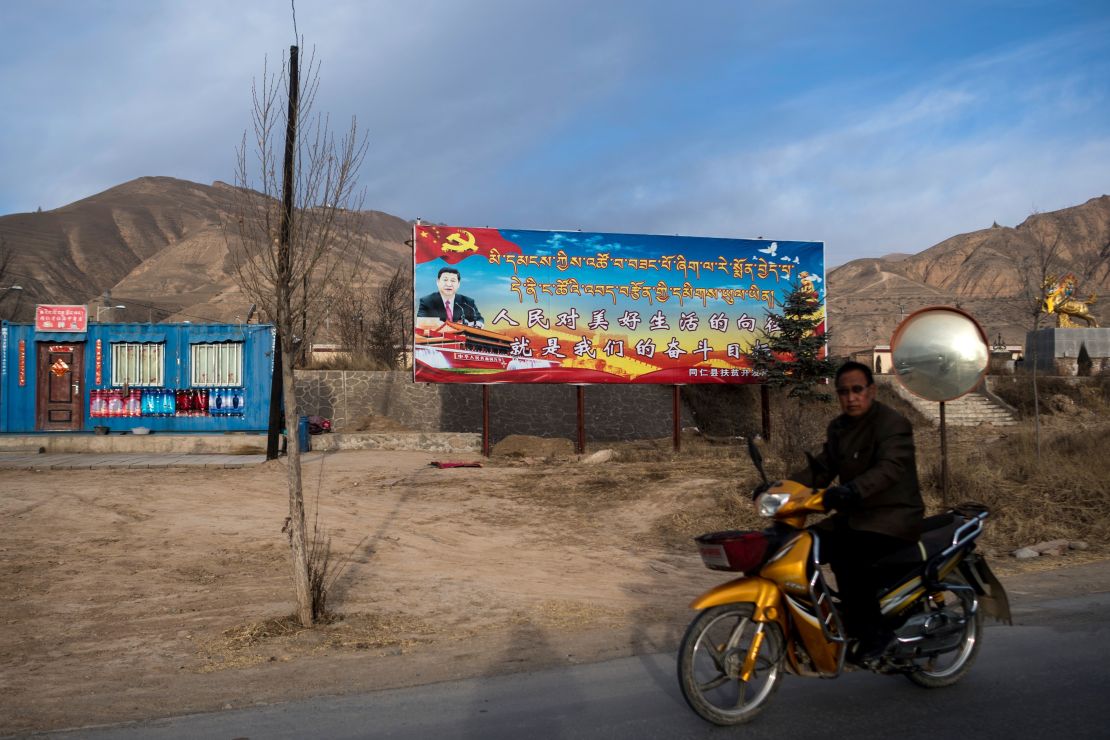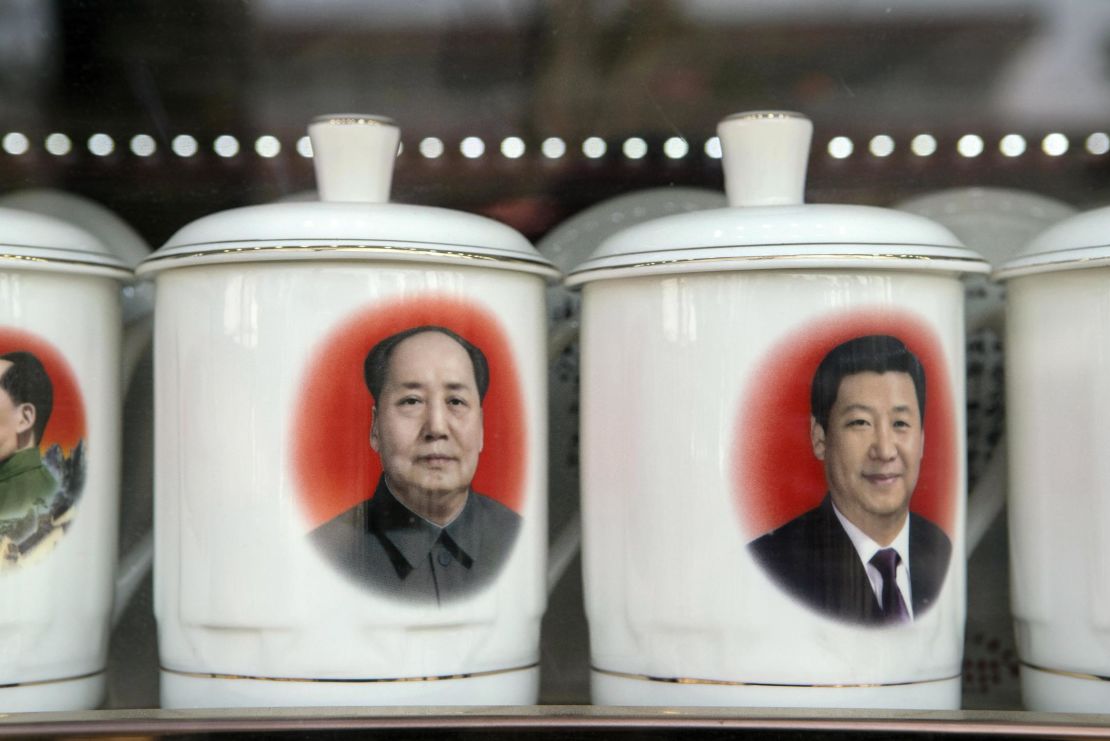Few political groups in the world have mastered the art of obfuscating phrases and confusing doublespeak as successfully as the Chinese Communist Party (CPC).
From “socialism with Chinese characteristics” to the “One Belt One Road” plan, through to the recently announced “new principal contradiction,” China’s powerful ruling party regularly uses opaque terms which mean little to casual observers.
This month, China holds its annual “two sessions” in Beijing to endorse the policies of the increasingly dictatorial Chinese President Xi Jinping.
“Two sessions” itself is Beijing jargon – it stands for the back-to-back meetings of the National People’s Congress, the country’s rubber-stamp legislature, and the Chinese People’s Political Consultative Conference – an advisory body.
During the meetings, there will be no shortage of Communist Party language on display. Here are some of the most common terms you can expect to hear, and what they mean.
Socialism With Chinese Characteristics
Following the death in 1976 of Mao Zedong, the founder of the People’s Republic, his powerful successor Deng Xiaoping moved to open up the country’s economy. But how could an anti-capitalist political party built on Marxism-Leninism embrace elements of a free market?
The answer turned out to be inventing “socialism with Chinese characteristics.”
Essentially, it means state-sponsored capitalism.
“(The phrase) explains how it can be that China is headed by a Communist Party yet has abandoned some of the main things typically associated with Marxism, such as working toward a future in which wealth is fairly evenly distributed,” said Jeffrey Wasserstrom, professor of history at University of California, Irvine.
“It can mean many things, such as a situation in which there is room for private enterprise, yet the state still plays an active role in managing the economy and state-run enterprises matter a lot.”
In 1993, China’s constitution was officially revised to include the phrase, and it is still used regularly today.
Xi Jinping Thought (On Socialism with Chinese Characteristics For a New Era)
Since October, when the Communist Party held its five-yearly congress, banners and signs across Beijing hailed the newly announced Xi Jinping Thought On Socialism with Chinese Characteristics for a New Era.
Officials have been told to study it, perhaps at one of the 10 research institutes that have been set up to interpret it, newspaper editorials lauded it and on Sunday it will be formally added to China’s constitution. So what is it?
“It’s probably a world view, rather than very carefully worked through ideological pointers,” Rana Mitter, director of the University China Center at Oxford University, told CNN.

“The centrality of the CPC itself as a driving force for Chinese domestic politics and life, and most distinctly, the assertion of a much more active China in the wider world.”
It is also a way to burnish Xi’s political brand as he continues to accumulate power and set himself up to be China’s leader for a long time yet, experts said.
“The main part of this to focus on is just that it involves elevating a creed with the leader’s name in it to sacred status, something that hasn’t been done with a living leader since Mao’s time,” Wasserstrom said.
The Chinese Dream
Before Xi Jinping Thought, there was the “Chinese Dream.”
It was Xi’s original idea to brand the policies of his new government, after he took power in 2012, and wasplastered across Chinese cities.
“Xi defines the Chinese Dream as ‘the dream of the rejuvenation of the Chinese nation’,” Minglu Chen, senior lecturer at the University of Sydney, said.
“According to Xi’s report to the 19th Party Congress in 2017, the Chinese Dream is a very inclusive idea that has social, economic, political, military and foreign relations aspects.”

It has obvious comparisons to the idea of the American Dream, in which any citizens of the United States can be anything they want if only they work for it.
The idea of the “Chinese Dream” has been left intentionally broad to encompass many different things, Mitter said, adding he’d heard it defined as both a prosperous economy and a more assertive China in the Asia region.
But Chen added there was another dimension to Xi’s dream in 2012 which is all the more relevant with every passing day.
“The Chinese Dream has become a new source of the CPC’s legitimacy, as ‘the Chinese Dream will be an empty dream without the CPC’s leadership’,” she said.
The Core of the Party
In October 2016, Xi Jinping was named “the core of the Chinese Communist Party,” a moment which revealed his power inside the country was growing.
He was already China’s President and, more importantly, the General Secretary of the CPC, but in the Chinese government having a traditional title alone doesn’t indicate how powerful you are.
Being “the core” elevates a Party Secretary above his peers, demonstrating his grip on power and his intent to use it as he sees fit.
“(The term) denotes that a single leader is the main one to focus on, as opposed to just the first among equals in a rule by committee situation,” Wasserstrom said.
Former CPC leaders Mao, Deng and once-General Secretary Jiang Zemin were all labeled “the core” during their times in power, but tellingly Xi’s immediate predecessor, Hu Jintao, was not.
“Hu Jintao was the first among equals and (his government practiced) clear collective decision making. Xi Jinping is no longer the first among equals,” Zhang Baohui, professor of political science at Hong Kong’s Lingnan University, told CNN in 2016.
Belt and Road
Few people are completely sure what Xi’s vision for global trade – One Belt One Road – means.
Overall, it is a huge, ambitious trade and infrastructure scheme by the Chinese government to link 68 countries and up to 40% of the world’s GDP in an enormous trade route.
A signature policy of Xi, it is a modern take on the Silk Road trade route from Europe to China. The Belt is a land connection spanning Asia and Europe and the Road is a wide network of maritime trading routes, from Fuzhou to Venice.
But what it will look like in practice, who pays for each stage of the trade route and which countries are involved is less clear. One expert described it to CNN in 2017 as more of a “philosophy” or “party line” than an actual policy.

“This is a catch-all pretending to be something specific,” Wasserstrom said.
It doesn’t even have a settled upon name or abbreviation – examples have included One Belt One Road, the Belt and Road Initiative and the unfortunately acronym-ed Belt and Road Forum (BARF), used when a summit on the initiative was held last May.
Whatever its name, some argue the policy is just a huge expansion of China’s power across the world, allowing it to push their bid to replace the United States as the primary international superpower.
Principal contradiction
Each “principal contradiction” is the main problem facing Chinese society, which must be identified and solved to avoid the society crumbling.
According to state-run Xinhua news agency, the Party has always identified a principal contradiction that its policies and initiatives are aimed at solving (in theory).
“Soon after 1949, it was ‘the people versus imperialism, feudalism and the remnants of Kuomintang forces’ which evolved into ‘proletariat versus bourgeoisie,’ a mentality which led to prolonged social turmoil across the country,” an editorial published after the 19th Party Congress said.

Once he took power, Deng announced the Party’s principal contradiction in 1981 would move away from class warfare and towards “material and cultural needs” of the country.
In 2017, Xi has changed it once again, a “new principal contradiction”, this time to place less emphasis on endless growth and more on quality growth.
“Now with China being the second largest economy in the world and a global power, the most pressing issue to be solved has become ‘the people’s ever-increasing demand for a better life’ and ‘unbalanced and inadequate development’,” Chen said.
Violating Party discipline
Whenever a Chinese official, no matter how high-ranking, is removed from power, you’ll almost always hear they have “violated party discipline.”
But what does it mean? Basically, in most cases it refers to corruption, Mitter said.
“In some cases it also has to do with following particular lines. If you think back to (former senior politician) Bo Xilai, he was clearly charged with corruption, but part of the problem was trying to carve out his own distinct political path,” he said.
There’s a very specific reason why the Communist Party uses the term “violated party discipline,” rather than just naming the actual charges.
“The party still takes very seriously the idea it is the vanguard institution of society, the party is supposed to be above the corrupt behavior of society,” Mitter said.
“Seeing high officials actually involved in corruption is seen as something which could degrade the way in which the whole governance of the party is regarded by the people.”
CNN’s Nanlin Fang and James Griffiths contributed to this report.
















